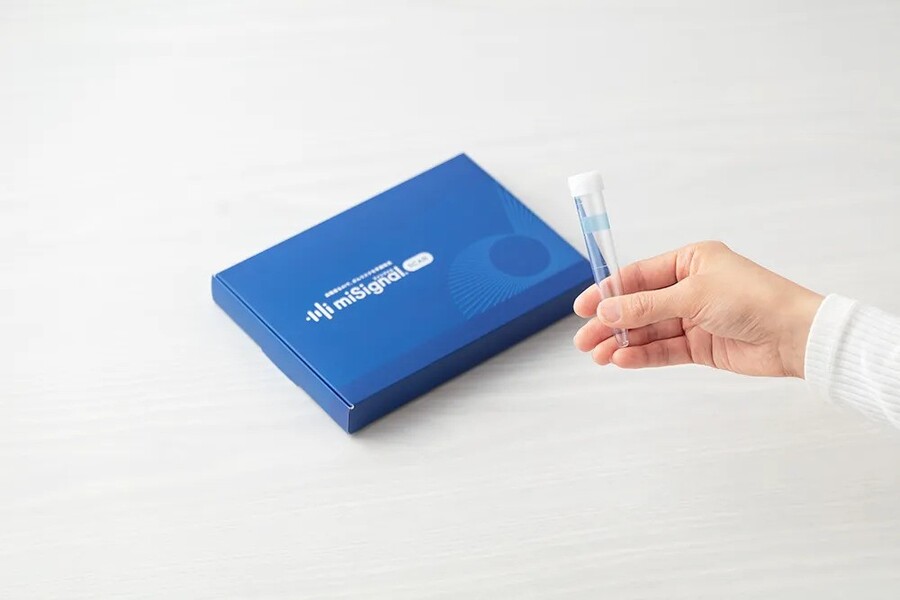In a significant stride toward revolutionizing early cancer detection, Japanese healthtech startup Craif announced it has raised $22 million in a Series C funding round. The Nagoya University spinout, founded in 2018, specializes in developing non-invasive, AI-powered diagnostic tools that use urinary microRNA (miRNA) biomarkers — a method it hopes will dramatically increase the accessibility and accuracy of early cancer detection.
The funding round, led by existing backer X&KSK alongside new U.S.-based investor Unreasonable Group, brings Craif’s total capital raised to $57 million and places its valuation just shy of $100 million. Other participants include TAUNS Laboratories, Daiwa House Industry, and Aozora Bank Group. The fresh injection of capital will support Craif’s expansion into the U.S. market, fuel its ongoing research and development, and aid in regulatory efforts as it seeks FDA approval.
Tackling a Global Health Crisis
Cancer remains a leading cause of death globally, with nearly 20 million new cases and 9.7 million deaths reported in 2022, according to the National Cancer Institute. By 2040, the number of new cases is projected to soar to nearly 30 million annually. Craif’s mission — to enable early and accessible cancer detection — addresses one of the most critical gaps in cancer care: early-stage diagnosis.
Traditional methods such as blood tests, imaging, and biopsies are often invasive, costly, and logistically challenging, leading to missed opportunities for early intervention. Craif’s innovation offers an alternative: a simple urine test that can detect cancers even at Stage 1, making routine screening significantly easier and less intimidating for patients.
“Our users are health-conscious individuals who are concerned about cancer but find it challenging to commit to conventional screenings due to time, cost, and accessibility constraints,” said Craif’s CEO and co-founder, Ryuichi Onose, in an interview with TechCrunch.
Onose, personally motivated by his grandparents’ battles with cancer, co-founded Craif alongside Nagoya University associate professor Takao Yasui, who had pioneered a method for identifying cancer-linked miRNA in urine.
Why Craif’s Approach Stands Out
While the broader early cancer detection space features competitors like Grail, Freenome, DELFI Diagnostics, and Clearnote Health, Craif distinguishes itself through two major scientific advantages:
- Use of miRNA over cfDNA: Unlike many competitors who rely on cell-free DNA (cfDNA) in blood, Craif’s technology detects microRNAs, which are actively secreted by early-stage cancer cells. This enables earlier and potentially more sensitive detection, according to Onose. The significance of miRNA research was recently underscored by its connection to the 2024 Nobel Prize in Physiology or Medicine.
- Urine-Based Testing: Urine samples offer a non-invasive, easy-to-collect, and scientifically advantageous medium. Compared to blood, urine has fewer impurities, reducing the likelihood of measurement errors such as hemolysis and making biomarker signals clearer and more reliable. Urine testing also eliminates the need for specialized collection procedures, supporting Craif’s vision of at-home cancer screening.
Craif’s flagship product, miSignal, currently detects risk for seven types of cancer — pancreatic, colorectal, lung, stomach, esophageal, breast, and ovarian — using urinary miRNA analysis. Launched initially in Japan, miSignal is already commercially available via clinics, pharmacies, corporate wellness programs, and direct-to-consumer channels.
The startup serves about 20,000 users through partnerships with over 1,000 medical institutions and approximately 600 pharmacies. With a team of 73 employees, Craif generated $5 million in revenue in 2024 and is aiming for $15 million by the end of 2025, according to Onose.
The company offers both one-time tests and subscription plans, with many customers opting for regular screening subscriptions to maintain proactive health monitoring.
Expansion Plans and the Road to U.S. FDA Approval
With the new funding, Craif plans to aggressively expand its footprint in the United States, one of the world’s largest healthcare markets. The company has already established an R&D lab in Irvine, California, and is preparing to open an additional office in San Diego to manage its growing U.S. operations.
Clinical trials to validate miSignal’s effectiveness in the U.S. are already underway. Craif is collaborating with 30 medical institutions across 15 states to collect pancreatic cancer samples as part of its early detection research efforts. It aims to complete U.S. trials by the end of 2026 and pursue FDA approval as early as 2027.
Looking ahead, Craif also plans to expand miSignal’s capabilities to detect more than ten different types of cancer. Beyond oncology, the company is exploring applications of its urinary biomarker analysis platform for the early detection of other serious diseases, such as neurodegenerative conditions like dementia.
Why It Matters
Craif’s advancements arrive at a pivotal time. The global healthcare industry is increasingly focused on preventive medicine and early disease detection to improve outcomes and reduce treatment costs. By offering a less invasive, scientifically robust alternative to traditional cancer screening methods, Craif’s approach could reshape how individuals engage with preventive health, especially for diseases where early diagnosis makes the most critical difference.
If successful in obtaining U.S. regulatory approval, Craif could become a transformative player in the $20 billion early cancer detection market, making proactive screening more accessible to millions worldwide.


